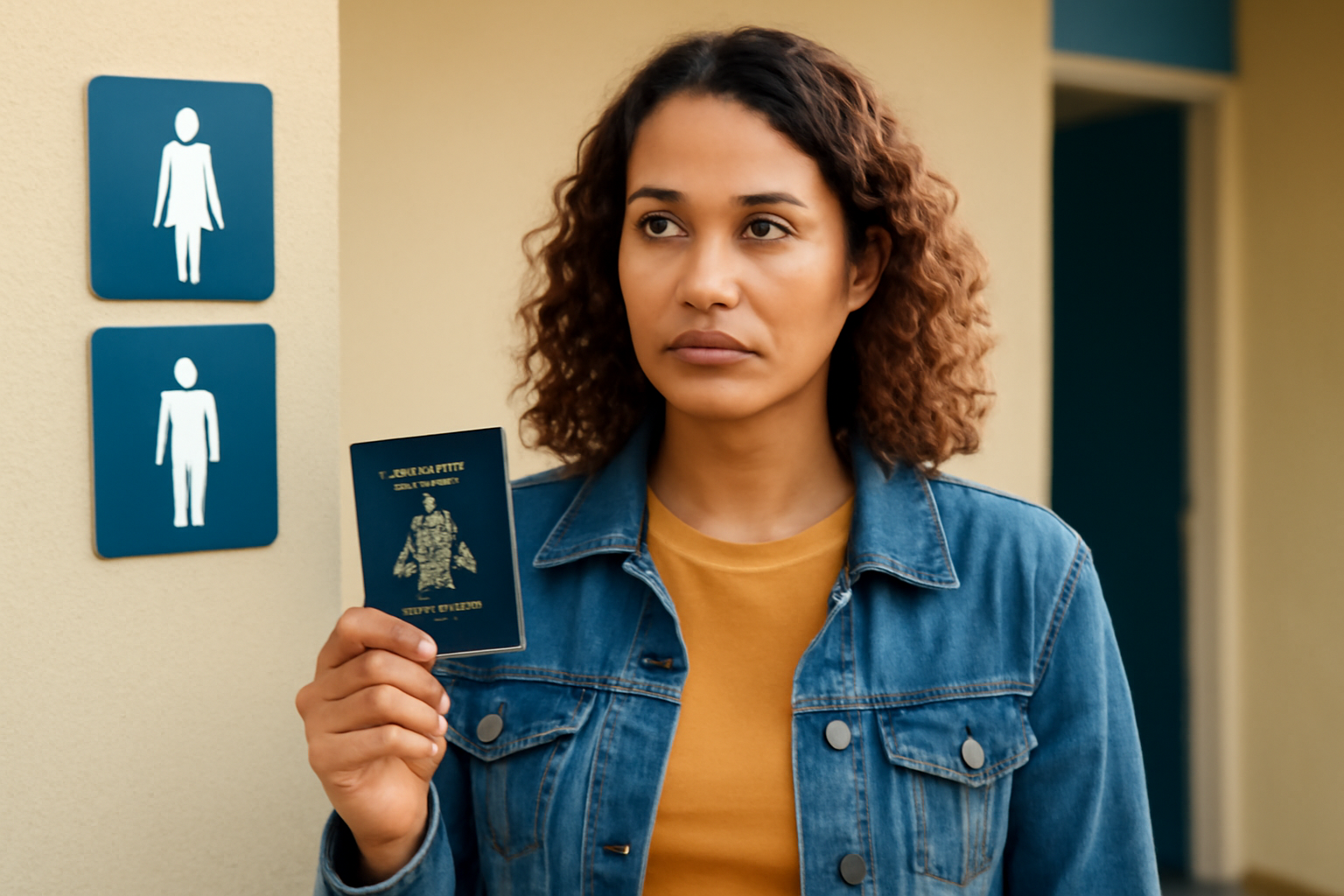
Under new proposed changes by the Equality and Human Rights Commission (EHRC), trans people might soon be required to present identification, such as passports, to access public toilets. These potential changes aim to modify the existing code of practice surrounding services, public functions, and associations, specifically in the context of single-sex facilities like toilets and changing rooms.
The proposed revisions to the non-statutory guidance were introduced as part of a public consultation initiated by the EHRC. This consultation comes after a pivotal UK Supreme Court decision, which in May ruled that the definition of "woman" in the 2010 Equality Act does not encompass transgender women. The court clarified that terms like "women" and "sex" refer to biological female sex. Despite this ruling, the court emphasized that transgender individuals still receive protection against discrimination under the law.
Following this decision, the EHRC, which is responsible for providing regulatory guidance based on the Equality Act, sought feedback on several of its provisions. In April, interim guidance suggested banning trans individuals from all gender-specific toilets, including those aligned with their birth sex.
Guidance Aimed at Clarity for Service Providers
Baroness Kishwer Falkner, chairwoman of the EHRC, stated that these changes are "vital" for helping service providers such as store owners, gym staff, and personnel in public facilities understand how to comply with the law. Though the guidance is not legally binding, it could potentially influence future legislation.
The updated code of practice advises that trans individuals use facilities aligned with their birth sex. It also outlines provisions for gender recognition certificates (GRC), which allow trans people to legally change their sex in the UK. However, the guidance specifies that trans women will be considered men and trans men will be considered women, irrespective of whether they hold a GRC.
One significant clause in the new guidance highlights that documents like a GRC or birth certificate will not suffice if a service provider demands ID. This is because GRCs facilitate amendments to birth certificates, potentially requiring trans people to carry passports as well as a copy of their GRC for ID verification.
Privacy Concerns and Legal Implications
The proposals also address privacy issues, noting that a person’s birth sex should only be questioned when necessary and justified. This is important as it aligns with Article Eight of the European Convention on Human Rights, which enshrines respect for private and family life.
Moreover, the code warns service providers that disclosing whether a trans person holds a GRC without consent could constitute a criminal offense under the Gender Recognition Act.
Chapter 13 of the guidance introduces a rationale for excluding trans individuals from gendered facilities. It states that service providers must prove such exclusion is a "proportionate means of achieving a legitimate aim," which includes ensuring "the safety of women or the privacy and dignity of both men and women."
This evolving guidance has sparked discussions and raised questions about its impact on the daily lives of transgender individuals. These changes, if enacted, may significantly alter how trans people navigate public spaces and could increase the burden of proof on them for accessing basic facilities.
Your thoughts are important to us. We encourage you to share your views on these proposed changes. Please engage respectfully in the discussion below!
These developments underscore the ongoing dialogue regarding the rights and recognition of transgender people within legal frameworks. The balance between ensuring safety and privacy in gender-specific spaces while respecting the rights of transgender individuals remains a contentious and complex issue.
Related Posts
Triumphant Trans Woman Wins Legal Battle and Inspires Others to Stand Up for Their Rights
Breaking new ground: a landmark victory in transgender rights After battling in courtrooms and enduring endless challenges, Diana Portillo, a transgender woman, has secured a monumental victory in her decade-long fight against workplace discrimination. The result? Nearly $1 million awarded in a historic settlement. But this isn't just a win on paper—it represents a powerful precedent in combati [...]
Pride Month in Latin America: Protests and Demands for Equality
**Celebrating Pride and advocating LGBTQ+ rights in Latin America** Pride Month in Latin America was a lively mix where celebration met activism. Communities united, not just throwing a party but making a stand—demanding equality and pushing governments toward better protection and rights recognition. Throughout Latin America, pride events erupted in marches and cultural displays, each with a c [...]
Transgender Erasure Actions Implemented by National Park Service
```html Trump administration's impact on national park service and transgender recognition The Trump administration made notable moves in undermining transgender representation, which included directing agencies like National Park Service not include "T" and "Q" when they refered “LGBTQ” in any official communication. This move seems part a broader plan by this administration aimed at reducin [...]